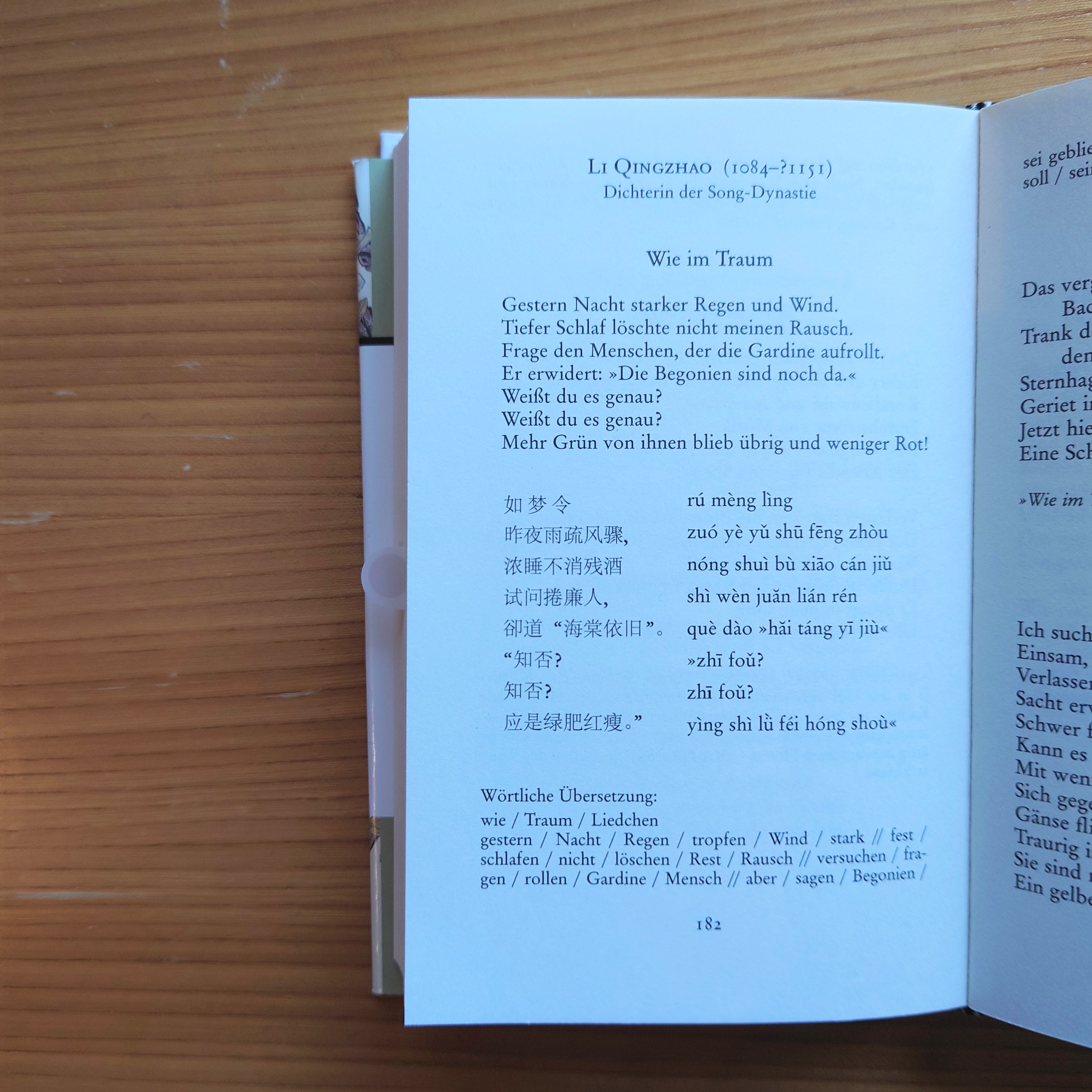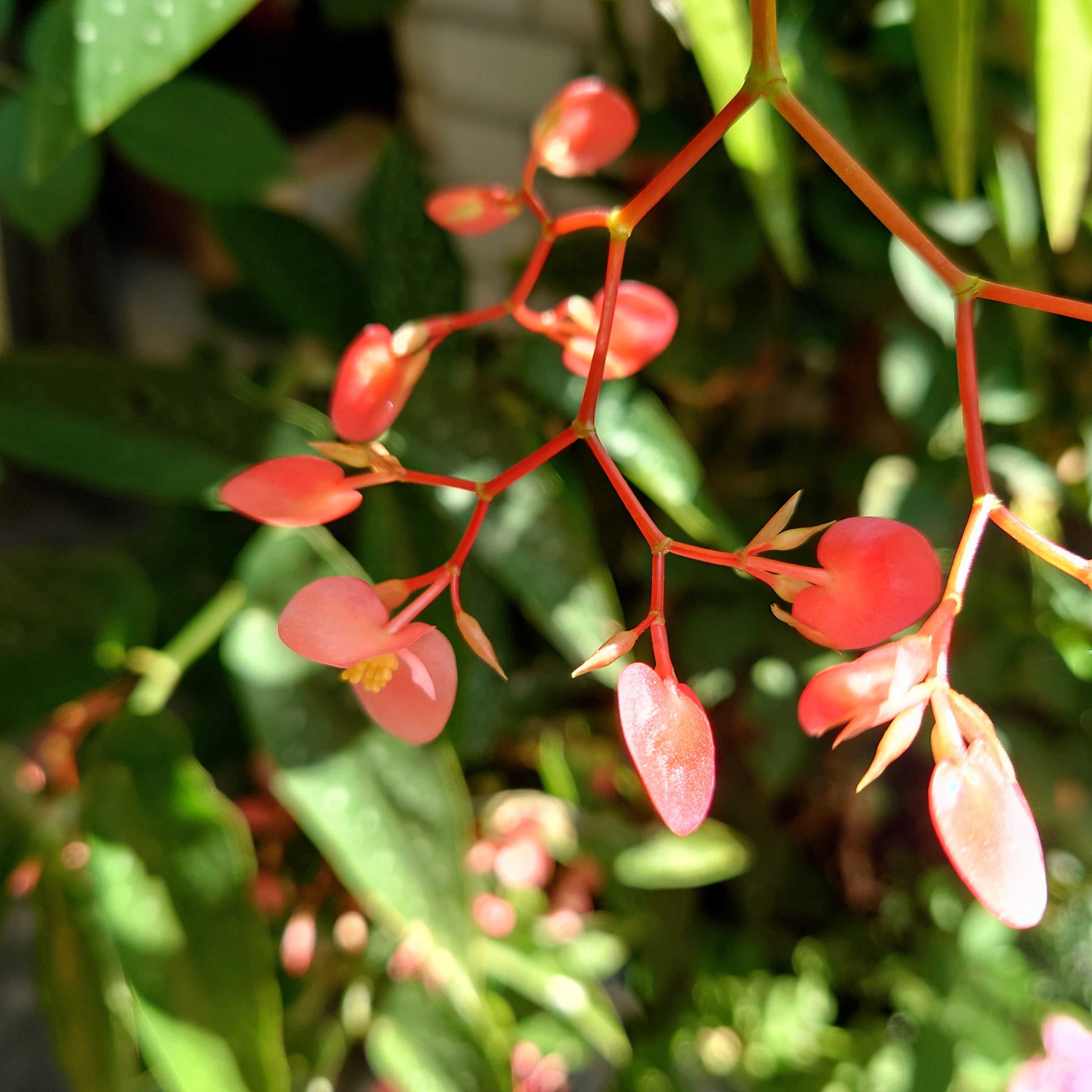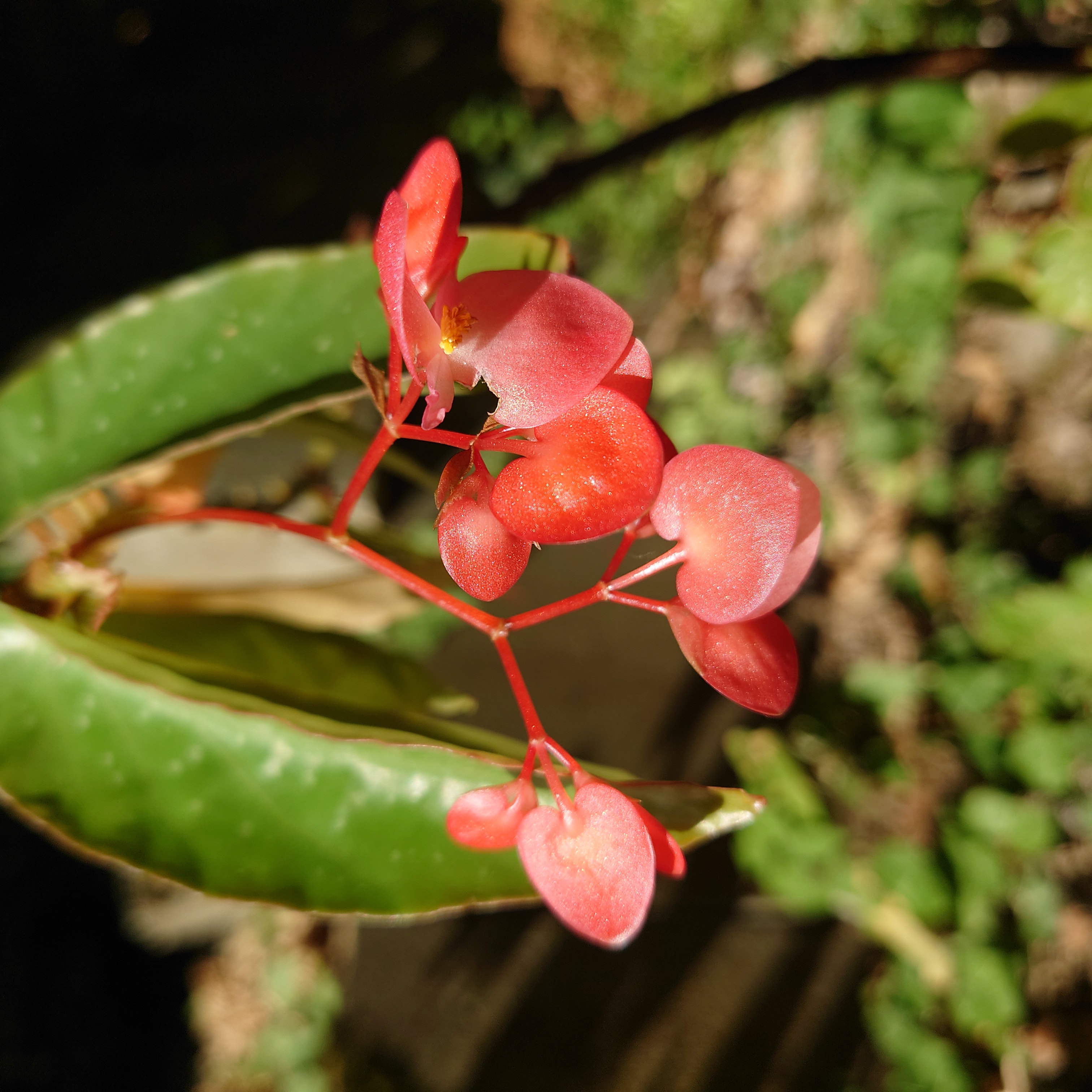
Last night the wind blew hard
and rain was fine.
Sound sleep did not dispel the aftertaste of wine.
I ask the maid rolling up the screen.
‘The same crab-apple tree’
she says, ‘was seen.’
“But don’t you know
O don’t you know
The red should languish”
如梦令/ Like a dream/ Wie im Traum
词: 李清照 译: 许渊冲
Lyric: Li QingZhao Translator: Xu Yuanchong
海棠依旧?
The same crab-apple tree?
“The same crab-apple tree? Didn’t you notice the difference?” the poet was not satisfied with the answer given. It was a stormy night, with just a little bit of logical thinking, one could presume that the tender crab-apple tree flowers fell off on the next morning. How could one gave an indifferent answer like: “The same crab-apple tree was seen.”?
Dissatisfied because of lack of attention to detail. I think back on my music lessons. When the teacher demonstrating two different versions of playing certain excerpt of an organ piece, my respond was: “Sorry, it was not very clear to me where is the difference.” After a few years of musical training, I am getting better in knowing the details. I also realized that careful attention to detail is the key to play music well.
I guess it is similar thing for a painter in recognizing the nuances in colour or a writer being picky with words and etc. Generally, also noticing details in everyday life. The life is much more than just getting the thing done, more than just to tick on the to-do-list. The poem encouraged me to be attentive to the people around me and the changes in nature, such as my Begonia flowers are blooming now.


My Begonia, not really the crab-apple flowers in the poem.
Note:
Li Qing Zhao (1084 – 1155) is the most important female poet in Chinese history. Her main composition was “Song Lyrics”.
“Song Lyrics” is a special kind of poetry composition that set words to available tune, not the other way around. This tune title is “Like a dream”, and many poems can be written under this tune title, this kind of poem called “lyrics”. “Lyrics” was at peak during the Song Dynasty (960 -1279), its common name is “Song Lyrics” – 宋词.
